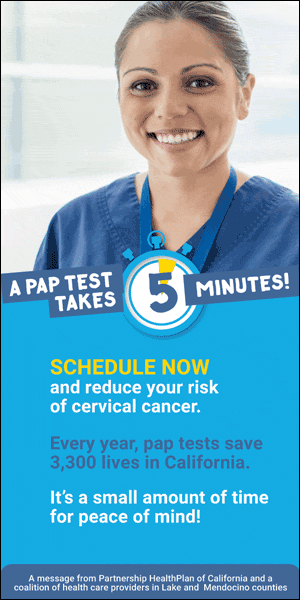

When a woman becomes a mother, huge shifts happen not just in lifestyle, but also identity, notes Alexandra Sacks, MD. As a reproductive psychiatrist, Sacks helps women with depression and anxiety in planning and during pregnancy, and after birth. But she has also noticed that some patients who didn’t meet the requirements of postpartum depression still felt better after talk therapy to acknowledge the challenges, stresses, and ambivalence involved in becoming a mother. Sacks is popularizing the word for this transition — “matrescence” — through her upcoming book, What No One Tells You: A Guide to Your Emotions from Pregnancy to Motherhood and podcast Motherhood Sessions in hopes of creating a larger, more honest conversation around motherhood.
We swept up with Sacks to learn how new moms can produce a supportive environment and care team whenever a new baby arrives.
Experience Life | What's reproductive psychiatry, and how did you get into it?
Alexandra Sacks, MD | Reproductive psychiatry was a focus when doctors were seeking methods to help manage medication for women with a history of depression and anxiety who conceive. We also help those who have their first knowledge about anxiety and depression when they’re pregnant or in the postpartum period. We’ll see patients struggling with premenstrual dysphoric disorder, infertility, pregnancy loss, or issues surrounding menopause. I’m trained like a psychiatrist and have an interest in women’s issues, therefore it really just felt like a calling.
EL | Your popular TED Talk and New York Times essay focused on “matrescence,” the transition women experience once they become mothers. Where did this idea originate?
AS | I was seeing patients who didn’t quite satisfy the clinical criteria for diagnosis of depression, but they felt better after one or two conversations with me about the transition a lady goes through during pregnancy and new motherhood.
We’d discuss how breastfeeding is stressful, and about how some people are not able to get it done. Or about how miscarriage is typical; about how parenting is often a strain and a stress on your romantic partnership; about how people often find early caretaking of kids to be boring and not only hard although not that inspiring. How it’s absolutely normal to question if you're cut out for motherhood or even if it’s the right decision — that that’s a normal question that most people ask themselves for this transition.
So I was trying to find a word to capture what’s not postpartum depression but additionally not easy about new motherhood, and that i discovered the term that [the late medical anthropologist] Dana Raphael coined in 1973, “matrescence,” to explain the transition into motherhood.
I think mothers ought to be further defining and figuring out what matrescence is and how to support each other around it. I don’t think it needs to be a doctor leading the conversation since i think it’s a lived experience that women are going through.
I really want to create a vocabulary and set this information out into the world to normalize the knowledge — to give women permission to talk about it and to encourage them to keep sharing their stories to further define what matrescence has designed to them, and really reduce the stigma and shame of ambivalence in parenting.
EL | Why do you think this hasn’t been discussed more broadly?
AS | We’ve been far better about educating the public about postpartum depression. While many women do suffer from that treatable, but serious, condition, most the pregnant and postpartum women I speak to have discomfort, but not this disease. I think there’s been a sort of turning away from that conversation for all those people.
EL | How can new parents get comfortable with sometimes feeling ambivalent about using a child?
AS | Every relationship in your lifetime has both good and bad feelings mounted on it. With your best friends, with your personal parents, with your partner — every single day is not perfect. That’s not what romantic relationships are like, and it’s simply not going to be any different for you as well as your baby. It’s a human relationship like any other and there are good days and bad days; there are good feelings and bad feelings, and sometimes they’re mixed together. Human relationships are complex and that’s part of what makes them so rich and beautiful, but they don’t come in little boxes. It’s not a bad thing when you start encountering those moments of complexity with your child. It simply means that you’re deeply engaging as a human being with another human being.
EL | Social media has played an important role in connecting people, but research indicates that it can negatively affect our mental health. What advice have you got for new moms, who are particularly vulnerable, when they are using these sites?
AS | Social media permits people to often share a filtered version of many of life’s experiences. Life is hard, and sometimes imagining a prettier version of it is a nice vacation for the 10 minutes you’re looking at your phone.
But it may be harmful to focus exclusively on the good times, because oftentimes if we are engaging with social media, we’re alone and we look to it for connection. And oftentimes, whenever you look at an example that doesn’t feel in line with yours, it can make you feel more isolated.
Consider using social networking to connect to others in a way that will make you feel more supported and can make others feel more supported. I share my focus on social media (@alexandrasacksmd) using #MotherhoodUnfiltered, and encourage others to talk about a moment of vulnerability. It might open up a whole door of friendship. Assistance you when you’re alone aware of the baby or awake in the middle of the night.
EL | What advice or resources do you suggest to pregnant or new moms looking to avoid postpartum mood disorders?
AS | Evidence shows that social isolation is a risk factor for depression. When new mothers are isolated and never talking about their real experiences honestly, it can raise their risk for postpartum depression. My hope is also that, by encouraging more honest conversation about these kind of vulnerable and complex emotional experiences, we may even be able to reduce rates of postpartum depression because we’ll be encouraging social support around new mothers for every other, and essentially encouraging community-based talk therapy. Putting your emotions into words is therapeutic.
EL | What strategies can people use to set themselves up for success before baby arrives?
AS | It’s vital that you figure out how and who is going to support you once the baby arrives. Talk to your partner about the different roles you’ll have, and who is going to help you in those early months of kid care.
- Who is going to help you during the day so that you can leave the house, so that you can get outdoors? And at night so that you can get some rest?
- Who will help so that you can go get healthy food?
- How will you see your friends?
- How will you balance that with parenting? Is it going to be with your partner to share daytime care or perhaps is it going to be with other family members? Is it going to be with your friends?
- If you can afford it, will you get the aid of someone you hire?
- If you’re single, who is going to be the supportive team that you simply create?
Make a list during pregnancy of the favorite forms of recreation and self-care, basically the things that bring you pleasure — the things that seem most obvious for you because those things fall away so quickly when a baby arrives — and post it on the refrigerator. When you stop doing the things that help you relax and that help you take care of yourself, that’s when you start cutting pleasure out of your life, so when we lose access to pleasure, it’s very, super easy to start feeling depressed.
Also, think about how you’re likely to see the people in your life in a manner that makes you feel connected.
EL | Sleep is really crucial to well-being, and parents of a new baby often don’t get a lot of it. What suggestions do you have for parents to get more sleep?
AS | Before baby arrives, talk about who is going to help you at night to get longer stretches of sleep and how you’re going to handle sleeping shifts. Newborn babies often need to be fed every 2 hours, but the human brain gets extremely depleted and irritable if you are up every two hours or if you’re not sleeping whatsoever at night.
So can you and your partner split the night time into two halves where you both gets an uninterrupted four-hour block of sleep? Can one of you do one of the feeds? If you’re breastfeeding, can the nonbreastfeeding partner give a pumped bottle or formula bottle so the breastfeeding mother can have a longer stretch rest?
EL | What advice do you have for family and friends of a new mom?
AS | Question them how they’re doing and how you can be of help, and work hard to quietly listen. Ask genuinely and earnestly, and with curiosity and humility. To do that, you have to really think about where you’re coming from emotionally.
For example, if you’re a grandma and you’re asking your daughter how you can help, you need to sort of put aside your own way of doing stuff that worked for you when you were a mom. No two humans are the same, so no two women that are pregnant have the exact story. Do not assume that you know what they need. Try to ask them what they need.
When a new baby arrives, people wish to congregate and celebrate, but when you go to visit someone having a newborn, remember that you are visiting somebody that just went through a major medical event. Your hosts are not throwing you a party; they’re in a moment of tremendous vulnerability. Inquire if you can bring food, how long they want you to stay, and don’t take it personally if they need to reschedule. Be respectful, supportive, and potentially even limit your visit.
Go to www.alexandrasacksmd.com to locate Sacks’s TED Talk, essays, and find out more about her work and upcoming book, What No One Tells You: A Guide to Your Emotions from Pregnancy to Motherhood.













